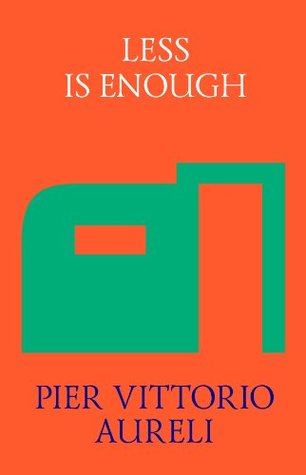For these subjects Serlio proposes a minimum dwelling unit which clearly reflects the ascetic character of the inhabitant. But here asceticism is not the inhabitant’s choice. Serlio’s little house is not for the hermit, or for those who have consciously chosen to reject private property. The poverty embodied by Serlio’s minimal house is a ‘productive’ poverty because it makes living conditions for the poor a little more bearable, so enabling them to reproduce their labour and to become productive subjects, ‘workers’.
Welcome back. Just a moment while we sign you in to your Goodreads account.


